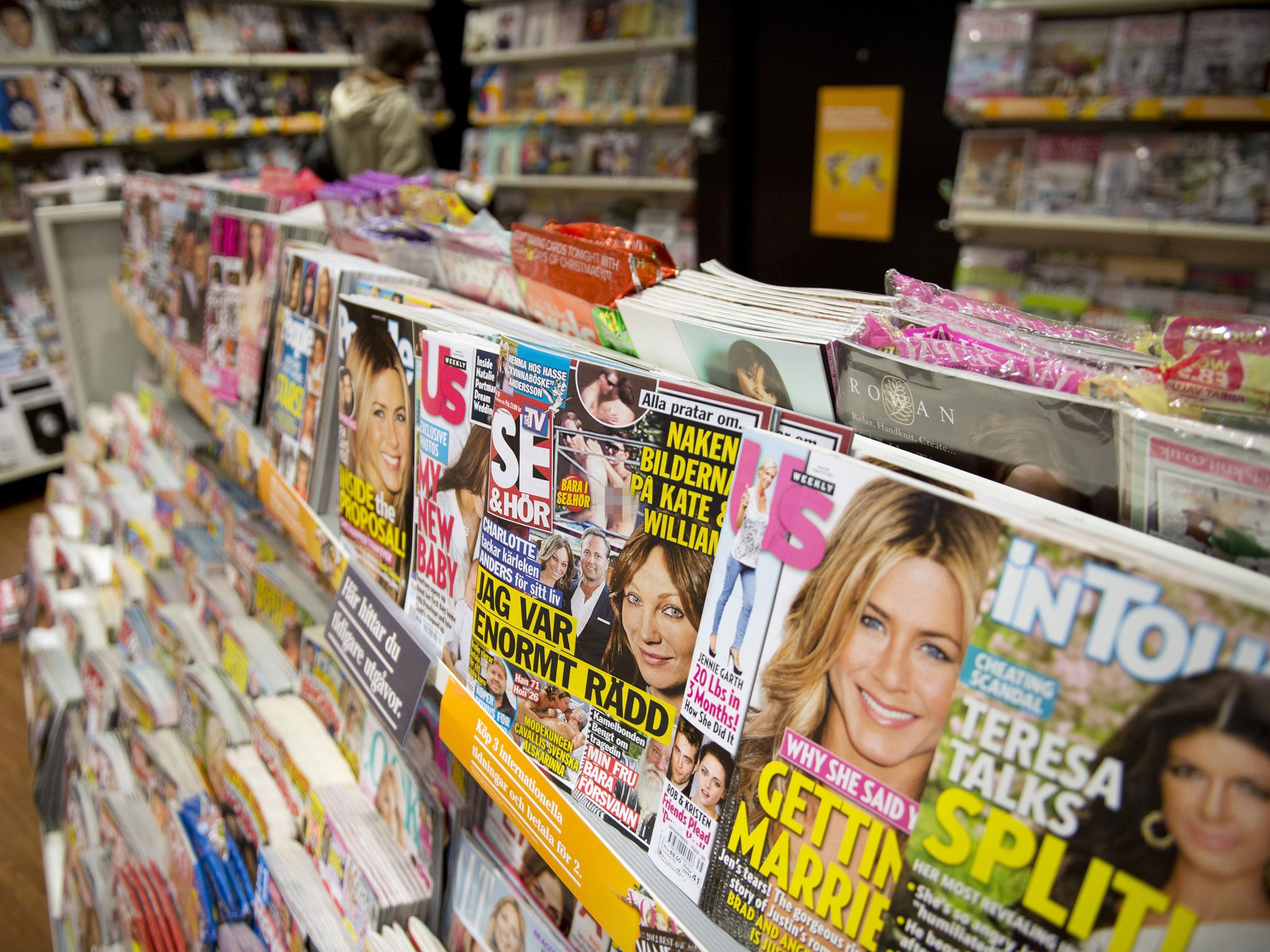No, Minister. It's stick-thin celebs you should target
Jo Swinson is wrong about magazine 'fad' diets

Your support helps us to tell the story
From reproductive rights to climate change to Big Tech, The Independent is on the ground when the story is developing. Whether it's investigating the financials of Elon Musk's pro-Trump PAC or producing our latest documentary, 'The A Word', which shines a light on the American women fighting for reproductive rights, we know how important it is to parse out the facts from the messaging.
At such a critical moment in US history, we need reporters on the ground. Your donation allows us to keep sending journalists to speak to both sides of the story.
The Independent is trusted by Americans across the entire political spectrum. And unlike many other quality news outlets, we choose not to lock Americans out of our reporting and analysis with paywalls. We believe quality journalism should be available to everyone, paid for by those who can afford it.
Your support makes all the difference.Jo Swinson has made tackling negative messages about body image her top priority since she became Equalities minister. But her letter to magazine editors last week, asking them "to shed the fad diets and fitness myths" in their January issues, is an unfortunate own goal. According to Swinson, "as editors you owe more to your readers than the reckless promotion of unhealthy solutions to losing weight".
It all sounds reasonable enough – until you go to the news-stand and look at what's actually there. I trawled through the magazines on offer at my local branch of WH Smith and, in fact, fad diets and fitness myths make for lean pickings. "Smart health tips for the holiday season," promises Marie Claire. Inside, readers are urged to turn down the thermostat (the lower the temperature, the higher your metabolic rate) and keep a food diary (just writing it all down will encourage you to lose pounds). Nothing too faddy there.
Beside it, Psychologies magazine suggests its readers "face up to your food issues", while Good Housekeeping recommends a walk before eating and a sprinkle of herbs rather than a wedge of butter on your sprouts.
It all sounds good advice. So is it maybe the down-market weeklies that Swinson has in her sights? Must be, I thought, spying this on the cover of Bella: "Festive Fab Fighter: Lose 7lbs in 7 days". Yet the diet inside turned out to be a very sensible (and no doubt effective) eating plan featuring a mixed if moderate diet, and up to 1,200 calories a day.
All of which makes me think it's not the magazine editors, it's Swinson herself, who is jumping on a bandwagon. And not even a very well-informed bandwagon, given that the January titles Swinson is aiming her changes at were out on the shelves in early December.
On a wider point, who's to say that diets – even short-term ones – are all bad? The reality is that 99 per cent of us (I made that statistic up, but I bet I'm right) let ourselves go, just a bit, over Christmas. We nibble on a few too many sausage rolls (when even one is too many); we ladle on the gravy, we spoon an extra couple of fat-laden roasties on to our plate, we dollop a generous blob of extra-thick cream on our Christmas pudding. And then a few days later, when we tread gingerly onto the scales – well, who'd have thought it? – we're nudging a couple of extra pounds.
So, given that they piled on rather neatly across four days, where's the harm in sloughing them off across a similar time frame? The reality is, we enjoyed the feast. Now we must endure the fast.
The bigger factor for body image, especially for the young people who Swinson is rightly most concerned about, is that too many magazines are chock-full of stick-thin celebrities. She's spoken in the past about the subliminal messages these images send out to teenagers, and she's right – that's a major problem.
It would be far better to engage with editors on the subject of celebrities and how they're portrayed in the media than to attack them for something they, in all honesty, aren't really doing: faddy diets might have been a feature of magazines in the 1990s, but on the whole the industry has moved on, and Swinson should have done her homework and realised that.
The overarching issue here is that, if Swinson is going to continue her war on negative body image, magazine editors are people she needs to keep firmly on-side.
So failing to acknowledge the largely responsible and useful messages they put out about diet and eating is not only doing them a disservice – it also, in the long term, undermines her own laudable campaign.
Join our commenting forum
Join thought-provoking conversations, follow other Independent readers and see their replies
Comments